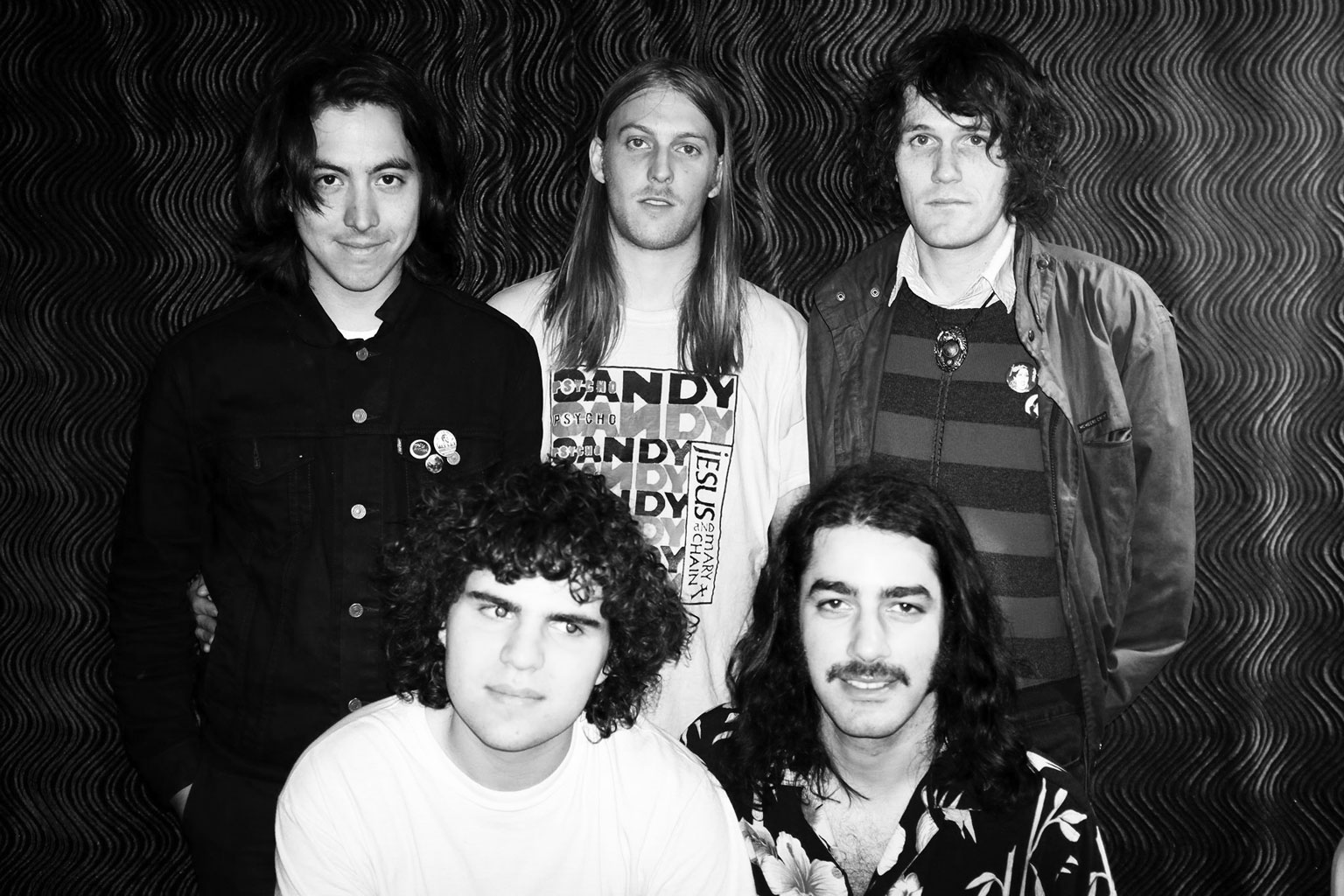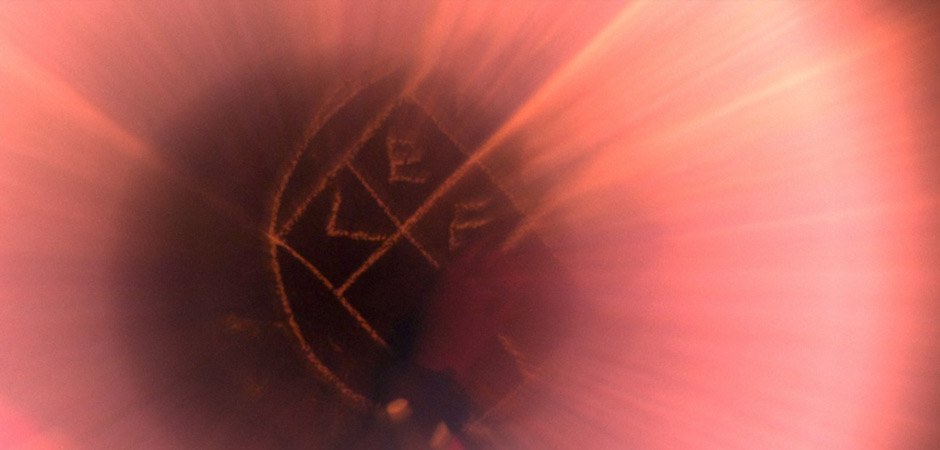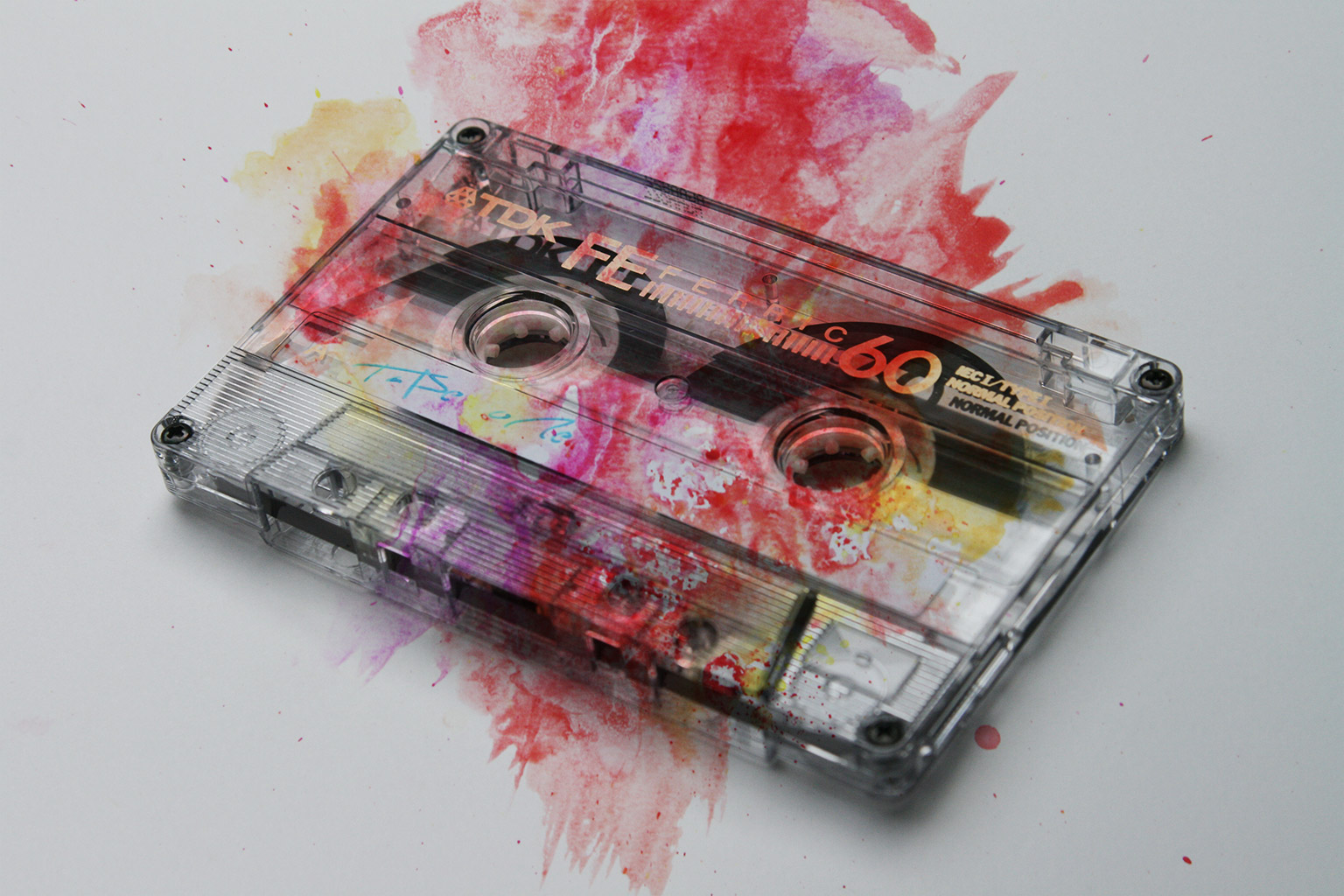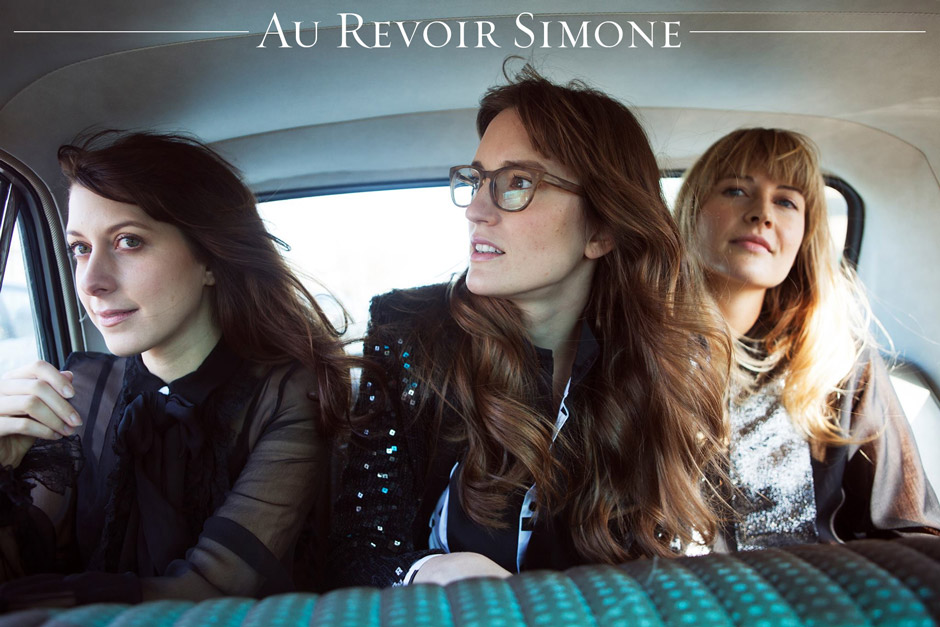Writing about music is tough. It’s such a personal thing and such an equivocal, murky thing—something people have many times rightly said is more felt than heard. So it’s inherent that words would fail with such a subject, but it’s gotta be done, especially if you write about it to promote bands and their work. Doing so often means you have to resort to more broadly recognizable classifications—larger, more known genres like rock, folk, or electronic; as you drill down, more obscure ones like Krautrock, glitch, black metal, twee…the list goes on. Two such genres that usually turn us off right off the bat are garage rock and garage-psych—they’re so over-used these days they mean almost nothing. And, what’s more, when they do mean something, they tend to describe bands we’re just usually not into. But recently, a new album by New York band The Mystery Lights was sent over to us with just those descriptors to it, and, when we gave it a listen, we totally dug it. High energy and, though it clearly looks back to 60s psych and the like, still doing something fun and new, not just noise in the musical Zeitgeist like so many other bands described with those tags.
Leading up to their Saturday show at the Bootleg here in Los Angeles, we got a chance to talk with Mystery Lights’ frontman Mike Brandon (upper row, far right) about the band’s influences, their move from southern California to New York, and how that city’s shaping their sound.
raven + crow studio: So, we’re just hearing of you guys, but how long has The Mystery Lights been a band and how’d you start?
Mike Brandon: L.A. and I have been playing together for about 15 years now. We started the band with our buddy Joe Della-Mora when we were in high school. We all had the same taste, so we decided to make some music together. We locked ourselves in an auto mechanic shop on Commission Street where we wrote tons of songs and recorded lots demos. After about two years of hiding, the band finally came out and introduced ourselves to the world. We played small shows here and there in California, not taking it too seriously. Shortly after, the band came to a halt. Joe got busy taking over his father’s business and our drummer at the time (Stephen Miller) got busy with school. After a long break, we decided to make the move to New York City and resurrect the band there, where we met the members that make up the current line-up today.
I have to be honest—theses days, if I get promos sent to me with ‘garage rock’ or ‘garage-psych’ or the like in their descriptions, I usually tune out pretty quickly. But what you guys are doing taps into something a little deeper, I feel like. Did you all set out to create a sound that looked back to older influences.
Honestly, we would most likely tune out promos attached to those two over-saturated genres as well. “Garage Rock” and “Garage Psych” has become something totally different today than when we started playing 15 years ago. We never started the band with the mentality of “Let’s start a Garage Rock Psych band!”, we just said let’s start a band and see what comes out. Looking back on older influences, we definitely listened to a lot of fuzz-driven 60’s garage rock comps like Uptight Tonight, Nuggets, Back from the Grave—the list goes on. We were and still are big fans of Billy Childish, The Kinks, Richard Hell, Television, Velvet Underground, Blind Willie Mctell, Sun Ra, The Yardbirds, Them—these were all heavy inspirations of ours growing up. We listened to everything though really—blues, jazz, hip hop, soul, punk, psych, rock n roll, country, etc. etc. Our influences know no bounds, and we don’t like to limit ourselves to categories like “garage rock” or “garage psych”.
Man, I’d say almost all of my 60s psych comes from the Nuggets boxed set. That thing is so solid. What originally brought you all to New York?
I was born and raised in Salinas, California, and L.A. (Luis Alfonso Solano) was born in Mexico, raised in Aptos, CA. We had some people out in New York encouraging us to move out there, so one day L.A. and I just decided to make the move. A more diverse, fast-paced city seemed appealing to us, with not much really happening for us in California at the time. I made the move first. After getting a bit comfortable, L.A. decided to come visit and ended up staying permanently. We then decided to resurrect the band.
Not to simplify, but you guys sound so New York. We moved to Los Angeles from Brooklyn a few years back, so let us live vicariously for a sec—tell us what you all love about New York.
Well, we all grew up listening to a lot of music that came out of New York such as The Velvet Underground, Television, Richard Hell, New York Dolls, Johnny Thunders, Blondie, Thelonious Monk, Silver Apples, Suicide, etc. A very inspirational time and place for music that gave birth to all these gems that each played a heavy influence on us. New York is much more fast-paced and diverse than what were used to, which we seem to thrive on. However, it gets to be a bit much at times. We do miss CA. More relaxed, small towns, where you know everyone’s name and can take a nice long drive on a road with no other vehicles around. We’ll move back someday soon, I’m sure.
I feel like a lot of my old haunts have closed down since moving out here—what are some good bars + venues you all like to play at or hang out at these days?
Our friend and producer (and Wick co-founder) Wayne Gordon co-owns a bar we like to hang out at called Our Wicked Lady. Has a nice rooftop where they have shows and play movies. Also Skinny Dennis, The Levee, KGB Bar, etc. We like to hang in bars that aren’t overpopulated. More relaxed, nice cold beer, good conversation. Love the $5 beer + shot deal with a good jukebox. For venues, I really dig seeing shows/playing at Shea Stadium a lot. Also Baby’s All Right has a nice powerful sound system I really dig, with a hectic backroom that’s always fun. We don’t really hang out at bar’s and venues honestly, unless we are playing or there is a specific occasion. We prefer drinking in our basement, making music, or going upstate to camp out at the boss Rhino’s.
Man. KGB Bar has to be one hundred years old—glad it’s still around and kicking. How was it recording the debut album and being in the studio as a full band?
Was great! We recorded the album live in one week to a 2 inch all-analog tape machine, which had a nice pure warm sound that we loved. The process captured the energy of the live show, which we never seemed to be able to do in the past when recording ourselves.
Did you all get a lot of support from you label, Wick/Daptone?
The Daptone crew are great to work with—they are very supportive of all their artists. They definitely made certain things possible for us.
Good to hear that. Can you talk briefly about the cover art (right)—who did it and what’s going on there?
The art was done by Kevin from our band. It draws from Wallace Berman’s verifax collages as well as the Stax ‘finger snap’ logo. It aims to reference the tradition of a lot of soul record covers (including Daptone’s previous releases) that typically deal with simple, ‘iconic’ images. There’s something uncanny about the hand though, and hopefully unsettling. The center collage portrays a world of images drawn from lyrics in the album.
No, it’s nice, and totally a little unsettling. Then what’s the name about, The Mystery Lights? Where does that come from?
The name just came to L.A. years ago. He took out this sheet of paper with the name “THE MYSTERY LIGHTS” written across it. It was perfect. The name rolled off the tongue and looked appealing on the paper he was holding out, so we made it our own.
Awesome. Thanks for talking, Mike. We’re looking forward to seeing you guys at the Bootleg when you come through town.
See you soon!
Photo by Emily Quirk. You can pick up The Mystery Lights’ debut full-length via iTunes or order a physical copy via their label, Wick. You can also stream it via Spotify.



